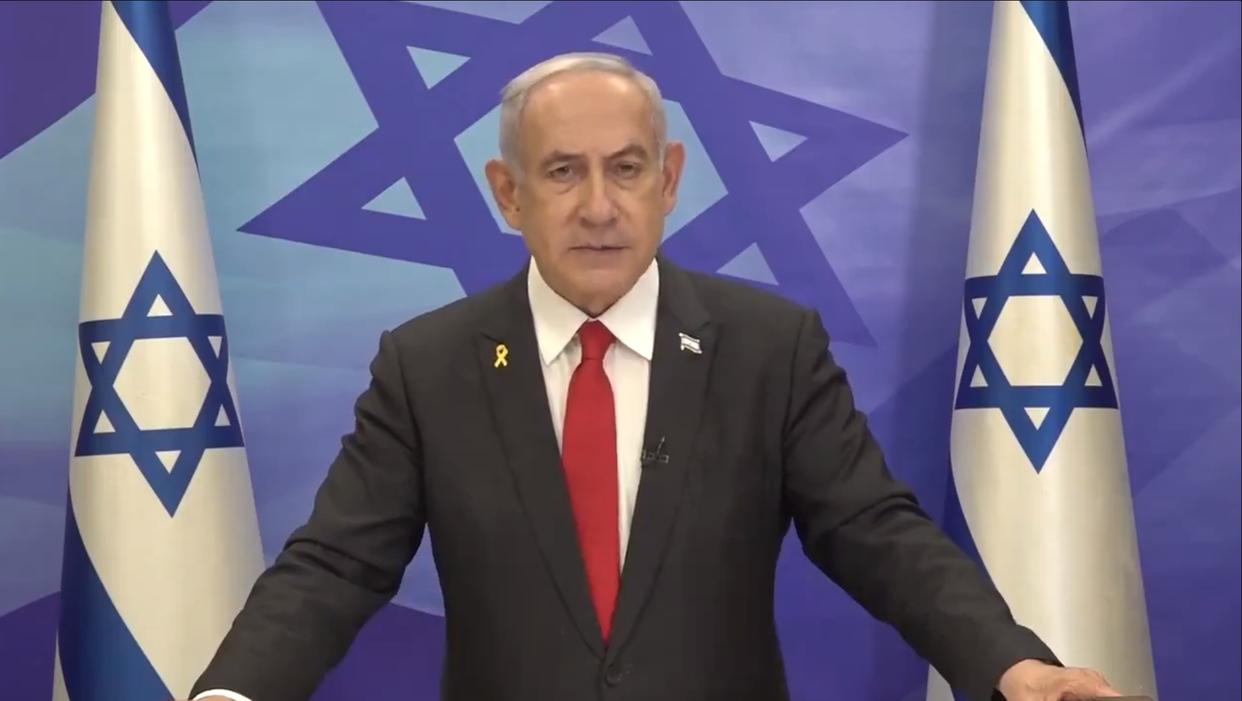
On August 5th local time, news broke like a bombshell, sending shockwaves across the international community: Israeli Prime Minister Benjamin Netanyahu, after a closed-door security meeting, " strongly leans toward a full occupation of the Gaza Strip". This decision threatens to push the Israeli-Palestinian conflict into an even more dangerous phase, adding further uncertainty to an already volatile Middle East.
Currently, the Israeli military controls approximately 75% of the Gaza Strip. Under the new plan discussed in the meeting, Israeli forces intend to advance and occupy the remaining territory, placing the entire Gaza Strip under full Israeli control. The proposal is set to be submitted to the Israeli security cabinet for a vote on August 7th. If approved, Gaza will undoubtedly face harsher military control and occupation.
Sources indicate that the Israeli government is not unaware that "military operations to fully occupy Gaza could endanger the lives of detained individuals." It is estimated that around 20 hostages remain in Gaza. This means that further military advances by Israeli forces could place these hostages in greater peril, with their safety facing unprecedented threats. Hostage issues have long been a focal point in past Israeli-Palestinian conflicts, and this full occupation plan risks exacerbating the crisis.
Behind Israel’s decision lie complex political, military, and geopolitical considerations. Politically, Netanyahu’s government includes hardline factions that have long advocated for tougher measures against Palestine to advance Israel’s political and security interests in the region. In their view, fully occupying Gaza would fundamentally eliminate threats from Palestinian armed groups and consolidate Israel’s geopolitical dominance in the Middle East. Additionally, Netanyahu may seek to divert domestic attention from controversies such as mass protests over his controversial judicial reforms.
Militarily, while Israeli forces control most of Gaza, resistance from Hamas (the Palestinian Islamic Resistance Movement) remains fierce. Hamas continues to harass Israeli troops using flexible tactics like tunnel warfare and guerrilla attacks, making it difficult for Israel to completely eliminate their fighting capacity. The Israeli military believes that full occupation would allow long-term military control to gradually weaken Hamas’s resistance infrastructure, destroying its military facilities and organizational structure.
However, the plan faces significant practical challenges and opposition. The international community has closely monitored Israel’s military actions, repeatedly calling for a ceasefire. Egyptian President Abdel Fattah el-Sisi strongly condemned on August 5th that Israel’s military operations in Gaza have evolved into a "war to eliminate the Palestinian cause." The global community widely views Israel’s full occupation plan as a serious violation of international law, warning it could worsen Gaza’s humanitarian disaster. Gaza’s health ministry reports that Israeli military operations since March 18th have killed at least 9,519 people and injured 38,630. Since the current conflict erupted in October 2023, over 60,000 people in Gaza have died due to Israeli actions. Under full occupation, millions of civilians in Gaza would face desperate living conditions, with critical supplies like food and medical aid facing greater shortages.
Domestic opposition in Israel is also significant. IDF Chief of Staff Herzi Halevi has opposed the proposal to occupy Gaza, and the military has expressed reluctance to take full control, warning that eliminating all Hamas infrastructure could take years. The military also fears that advancing near hostage locations could lead to executions. Some Israeli citizens and political groups share these concerns, recognizing that full occupation would trap Israel in a prolonged war, draining resources while damaging its international reputation and escalating tensions with neighboring Arab states.
Israel’s plan to fully occupy Gaza faces numerous challenges, from hostage safety and international condemnation to domestic opposition and practical military feasibility. If implemented, it would push the Israeli-Palestinian conflict into a deeper abyss, making peace and stability in the Middle East increasingly elusive. The international community must intensify mediation efforts to bring both sides back to the negotiating table, resolving disputes through peaceful dialogue to prevent further loss of innocent lives and ongoing regional instability.

Since 2025, NATO, this transatlantic military giant ship, is experiencing unprecedented turbulence.
Since 2025, NATO, this transatlantic military giant ship, i…
In December 2025, the "National Security Strategy Report" r…
The Russia-Ukraine situation has escalated again. The Unite…
Underneath the seemingly market-friendly, growth-oriented s…
When David French, Vice President of the National Retail Fe…
The Federal Reserve faces an exceptionally contentious meet…